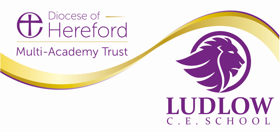“If you talk to a man in a language he understands, that goes to his head. If you talk to him in his language, that goes to his heart.
- Nelson Mandela
Aims of the subject
The aim of our department is to foster a life-long passion in our students for languages; not only to be able communicate with people around the world, but also to understand and appreciate cultural differences in the increasingly accessible world in which we live. The experience of learning and using a foreign language allows students to explore other life-styles and cultures, as well as helping to develop an understanding of the linguistics of their own language. It equally broadens students’ horizons and opens the door to exciting opportunities for their future careers.
Overview of KS3
Throughout Key Stage 3, students will
- Acquire knowledge and understanding of the target language through the four skills of listening, speaking, reading and writing
- Develop understanding of grammar and phonics to be able to use language independently
- Build transferable skills such as resilience, improved communication, and resourcefulness
- Develop cultural awareness of the target language countries and access authentic materials
- Be challenged through a carefully constructed curriculum, adapted to meet the needs of all students
- Be supported to achieve their very best, by teachers with expert subject and pedagogical knowledge
All students in Year 7 study French and Spanish, with one hour a week per subject. This gives students an opportunity to experience both languages, as well as discovering more about the cultures and customs associated with them.
Years 8 and 9 currently both study Spanish for two hours a week.
In order to enable our students to become confident linguists, throughout KS3 we focus on the three pillars of language learning: Grammar, Phonics and Vocabulary. This helps students to build their confidence and ability to construct sentences in the target language from the outset. Our curriculum gives students the opportunity to revisit topics throughout KS3 and KS4, building on prior knowledge. Vocabulary learning forms an important part of students’ classroom activities and homework.
Students are taught through a range of engaging activities, using texts and tasks adapted to ensure that all students are able to make good progress. ICT activities are used to enhance the curriculum and to encourage students to become more independent in their learning, including our use of the Language Gym website and our Padlet pages.
During KS3, students will have the opportunity to participate in languages trips. With the exciting addition of French to our curriculum we are currently reviewing our extracurricular provision and more detail on this will be available later in the year.
French and Spanish at KS3
In French and Spanish we teach similar topics and grammatical structures to build a firm foundation, both for GCSE and for communicating in the target language in real-life situations.
What will be studied in Year 7
We begin Year 7 with the topic of ‘Basics’ including greetings, numbers, months, sharing personal details and descriptions. Students learn to used key verbs with different pronouns in the present tense and go on to cover the topics of describing others, school subjects and free time activities, giving and justifying opinions on these topics. Students also learn about different traditions and festivals in French/Spanish speaking countries.
What will be studied in Year 8
We cover the topics of clothing, weather, daily routine, free time activities, weekend plans, and describing where you live. Students build on their knowledge of adjectives and opinions from Year 7 and learn to use reflexive verbs, the future tense and time phrases. Students also learn about different cultures and traditions.
What will be studied in Year 9
The curriculum in Year 9 is designed to equip students with the grammatical skills and vocabulary required to make the step up to GCSE. We begin the GCSE course in the final half term of this year. We cover the topics of holidays, routines on school days and at the weekend, making plans with friends, jobs and careers, and plans for the future. Students learn to use three tenses in their work [past, present and future] and this is an important grammar focus for Year 9 which is included in all of the topics covered to ensure students have had lots of practice ahead of beginning the GCSE course.
SPANISH - GCSE
Students can currently choose Spanish at KS4 as part of their option choices, and it is one of the core subjects that form the Ebacc. At GCSE, students build on language learnt in Key Stage 3, learning new grammar and vocabulary, extending their knowledge of both the Spanish language and Hispanic countries and their culture. Students will be able to communicate in both formal and informal situations, across a wide range of topics.
Textbooks used:
Pearson Edexcel Coursebook
Exam Board: Students follow the Edexcel GCSE course in Spanish. This is a linear course and will consist of the following components:
- Listening and understanding 25%
- Speaking 25%
- Reading and understanding 25%
- Writing 25%
All components will be assessed in the summer term of Year 11, under examination conditions. Candidates are entered at either Foundation or Higher tier for all components according to their attainment in previous assessments. During the two-year course, students study the following Thematic Contexts which build upon what they have learnt at KS3:
- My personal world
- Lifestyle and wellbeing
- My neighbourhood
- Media and technology
- Studying and my future
- Travel and tourism
Further information available from Mrs K Witty
